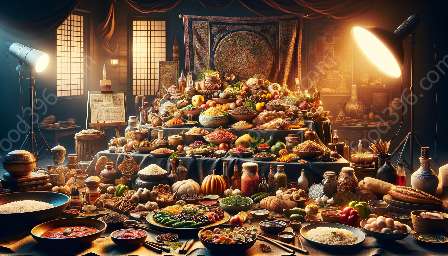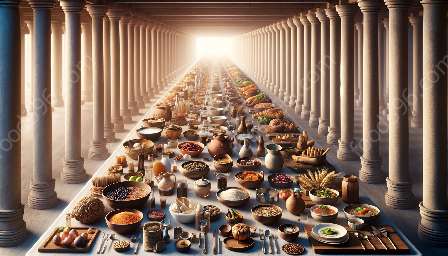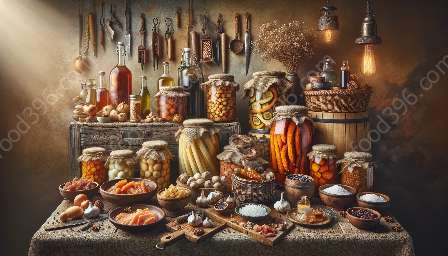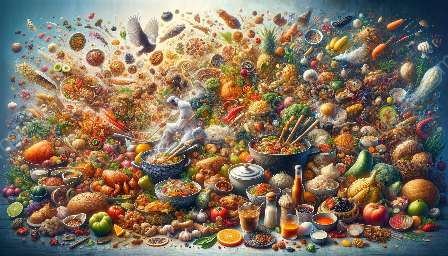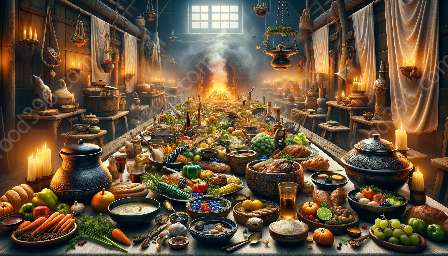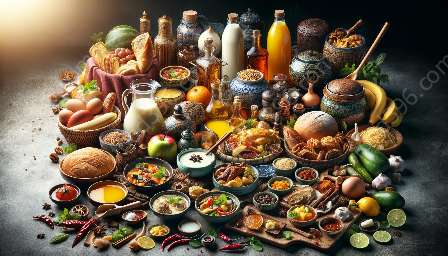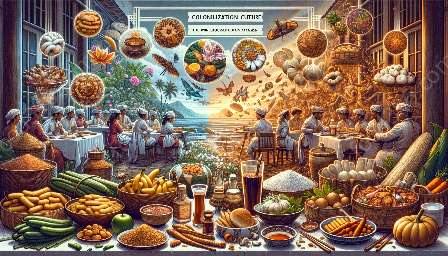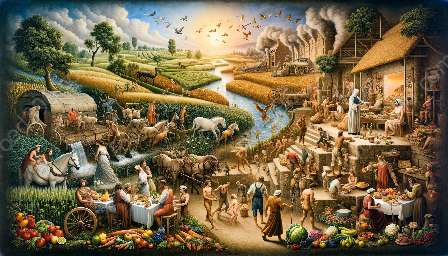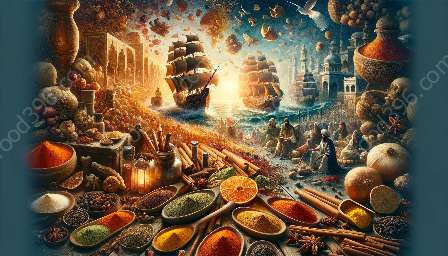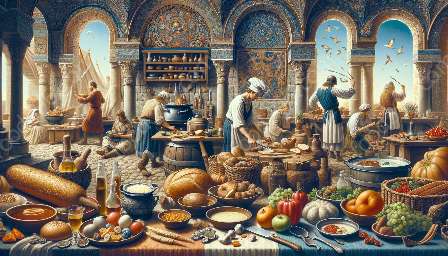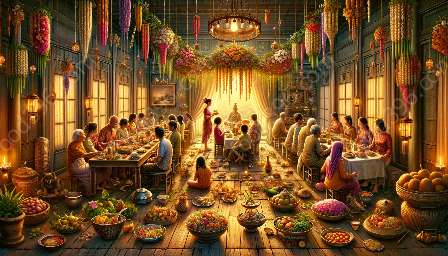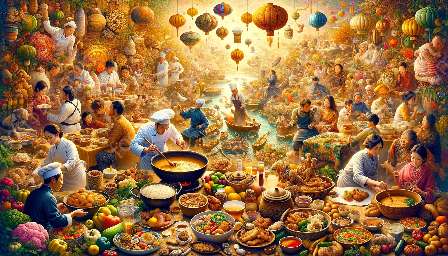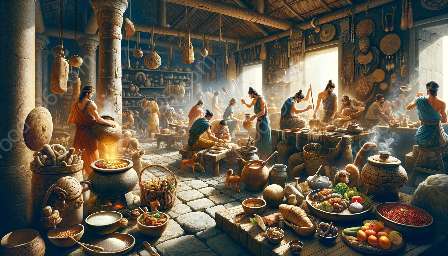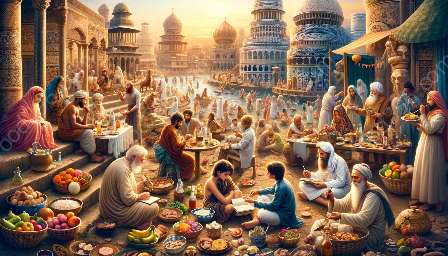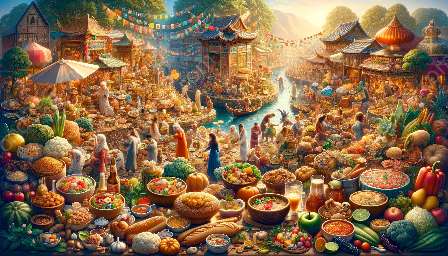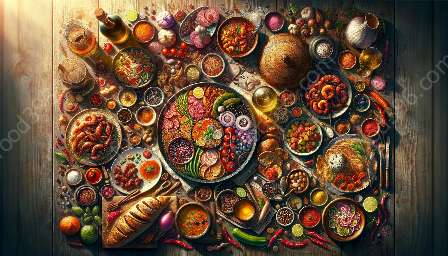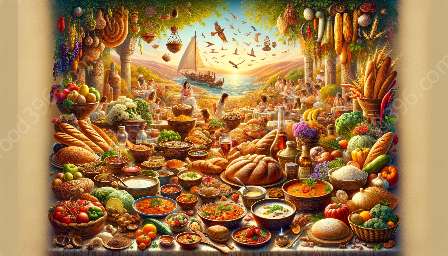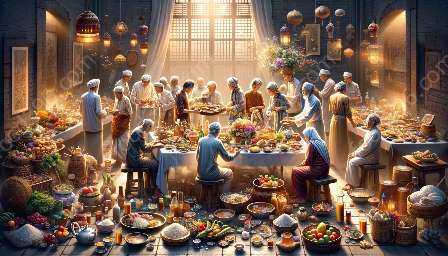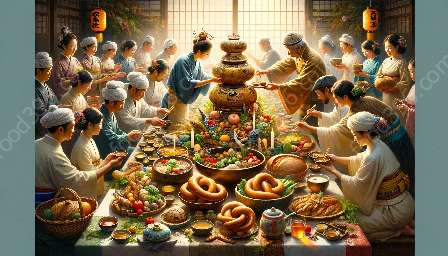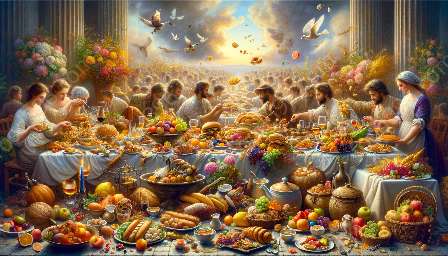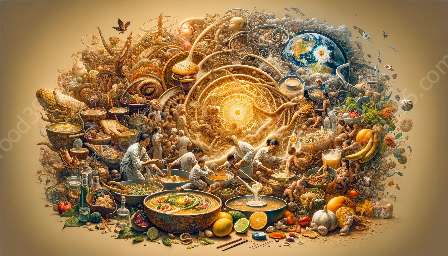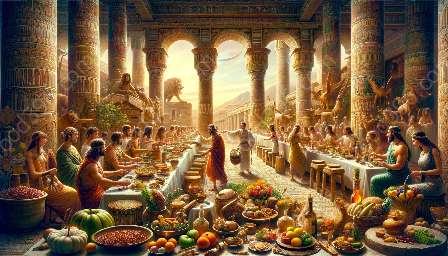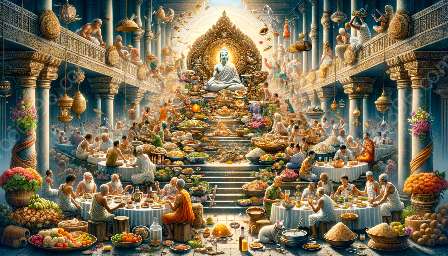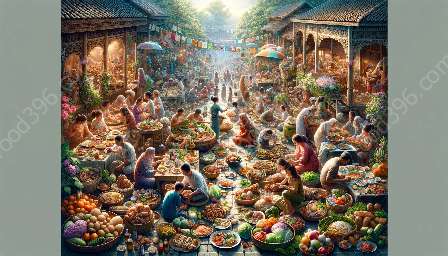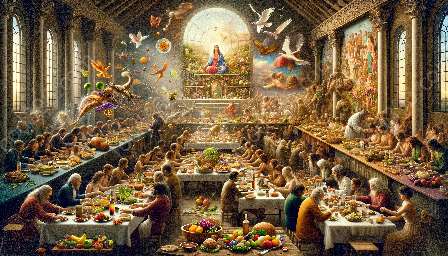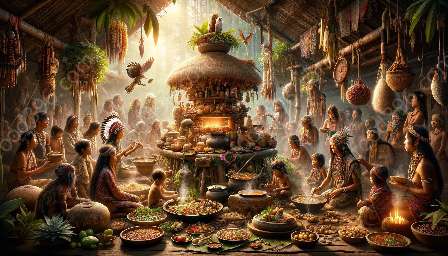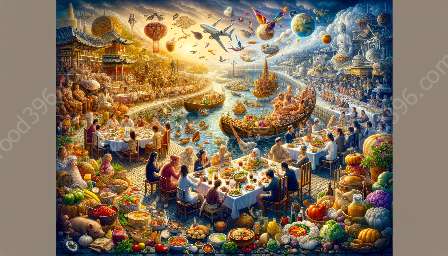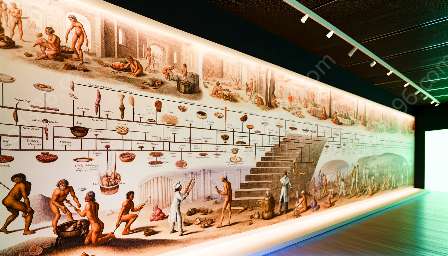Food taboos and dietary restrictions have been an integral part of human history and culture. They play a crucial role in shaping the way people eat and drink across different societies and time periods. Exploring these taboos and restrictions provides invaluable insights into the food culture and history of various civilizations. Let's dive into the fascinating world of historical food taboos and dietary restrictions.
The Role of Food Taboos and Dietary Restrictions
Food taboos and dietary restrictions are ingrained in the social and cultural fabric of many societies. These restrictions are often rooted in religious beliefs, cultural practices, health considerations, and environmental factors. They serve as guidelines for food consumption and are intended to promote health, maintain social order, and uphold spiritual or religious customs.
Throughout history, these taboos and restrictions have influenced the culinary practices of communities around the world. Some food prohibitions stem from ancient superstitions, while others are based on practical considerations related to food safety and sustainability. Understanding the origins of these taboos sheds light on the intricate relationship between food and culture.
Food Taboos in Ancient Civilizations
Ancient civilizations had intricate systems of food taboos and dietary restrictions that were deeply intertwined with their societal norms and religious beliefs. For example, in ancient Egypt, the consumption of certain foods like pork was forbidden due to religious considerations. Similarly, in ancient India, the caste system played a significant role in dictating dietary restrictions, with certain castes being forbidden from consuming specific foods.
Meanwhile, in ancient China, food taboos were based on the principles of balance and harmony in the human body. The concept of yin and yang informed dietary practices, with certain foods being categorized as yin or yang and consumed according to the individual's physical constitution and prevailing environmental conditions.
The ancient Greeks also had their own set of food taboos and dietary guidelines, as documented in writings by scholars such as Hippocrates. These guidelines emphasized the importance of moderation in food consumption and highlighted the connection between diet and overall well-being.
Medieval Food Taboos and Dietary Practices
The medieval period witnessed the continuation of many ancient food taboos and the emergence of new dietary practices shaped by factors such as social class, geographic location, and trade routes. Religious institutions exerted significant influence over dietary restrictions during this period, with fasting and abstinence playing a central role in Christian dietary observances.
Similar to the ancient civilizations, medieval societies associated certain foods with moral and religious connotations. For instance, the taboo surrounding meat consumption during Lent was a reflection of both spiritual discipline and agricultural considerations, as it allowed for the conservation of meat stocks before the arrival of the spring season.
Food taboos and dietary practices were also influenced by the medicinal beliefs of the time, as illustrated by the widespread use of food ingredients for purported healing purposes. Medical texts of the medieval era often prescribed specific dietary regimens based on the humoral theory, which categorized foods according to their perceived effects on the body's humors.
Exploration and Colonialism: Impact on Food Taboos
The age of exploration and colonialism brought about significant shifts in global food cultures and introduced new taboos and dietary habits through the exchange of crops, animals, and culinary traditions. The encounter between different cultures led to the blending of food practices, as well as the imposition of dietary restrictions by colonizing powers on indigenous populations.
Explorers and colonizers often encountered unfamiliar foods in the lands they traversed, which challenged their existing culinary norms and led to the adoption of new ingredients and cooking methods. This exchange of foodstuffs and culinary knowledge had a lasting impact on the food taboos and dietary practices of both the colonizers and the colonized societies.
Moreover, colonial powers sought to impose their own dietary norms, often leading to the prohibition of indigenous foods and the forced adoption of new culinary practices. These attempts at cultural assimilation and dietary control had profound repercussions on the traditional food cultures and culinary heritage of many societies.
Changing Food Taboos in the Modern Era
The modern era has seen a dynamic evolution of food taboos and dietary restrictions, influenced by factors such as globalization, technological advancements, and shifting societal values. Traditional taboos have been challenged and redefined, while new dietary trends and controversies have emerged, shaping the contemporary food culture and history.
The rise of industrialized food production and intensive farming practices has led to debates around the ethical and environmental implications of food consumption. As a result, movements advocating for sustainable and ethical food choices have gained traction, prompting individuals and communities to reassess their dietary preferences and habits.
Furthermore, as societies become more interconnected, the exchange of culinary practices and the fusion of diverse food traditions have contributed to a reevaluation of traditional food taboos. This has led to a greater acceptance of previously restricted or stigmatized foods, as well as the adaptation of global influences into local dietary customs.
Conclusion
The exploration of historical food taboos and dietary restrictions offers a compelling lens through which to understand the intricate relationship between food culture, history, and societal norms. Across different time periods and cultures, these taboos and restrictions have shaped the culinary practices and dietary habits of diverse communities, reflecting their spiritual, cultural, and environmental values.
By delving into the origins and evolution of food taboos, we gain valuable insights into the ways in which human societies have navigated the complexities of food consumption, as well as the ways in which food culture and history have contributed to the development of culinary traditions and dietary norms.

